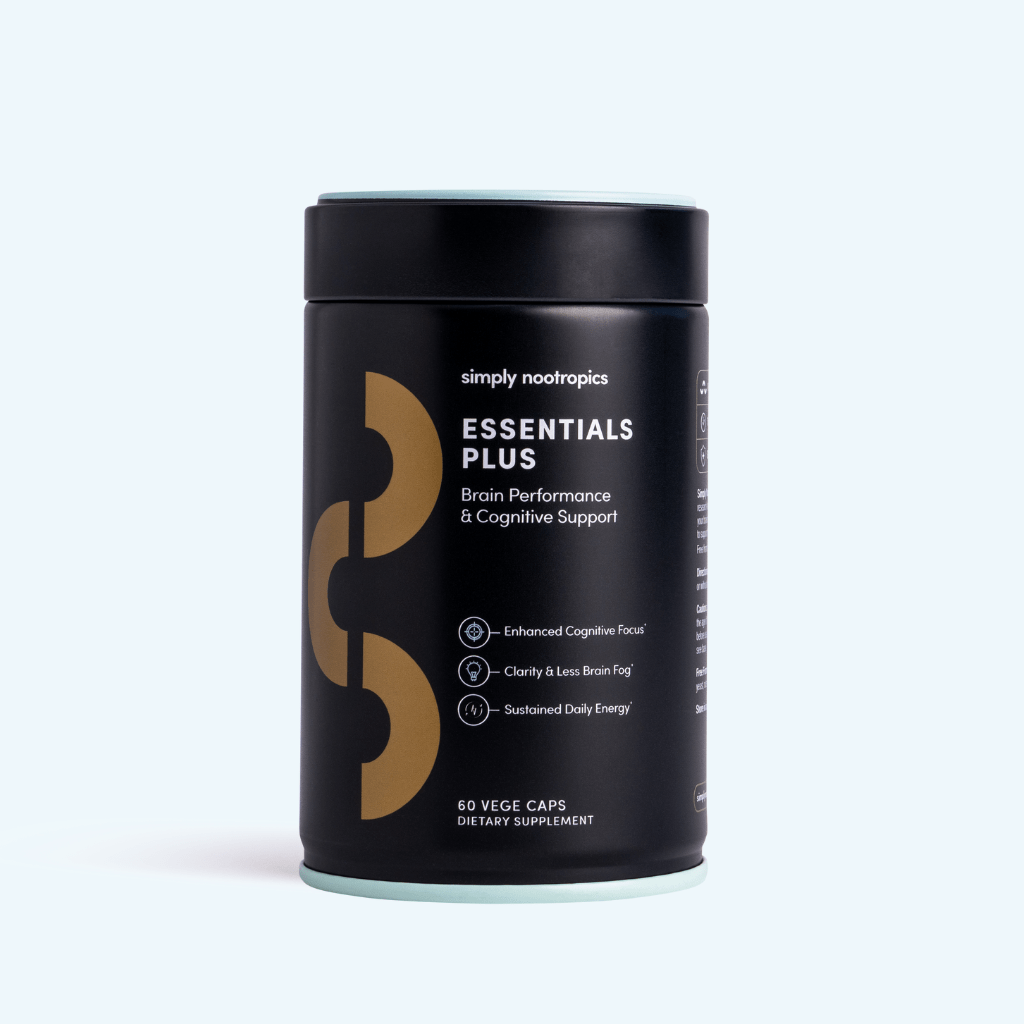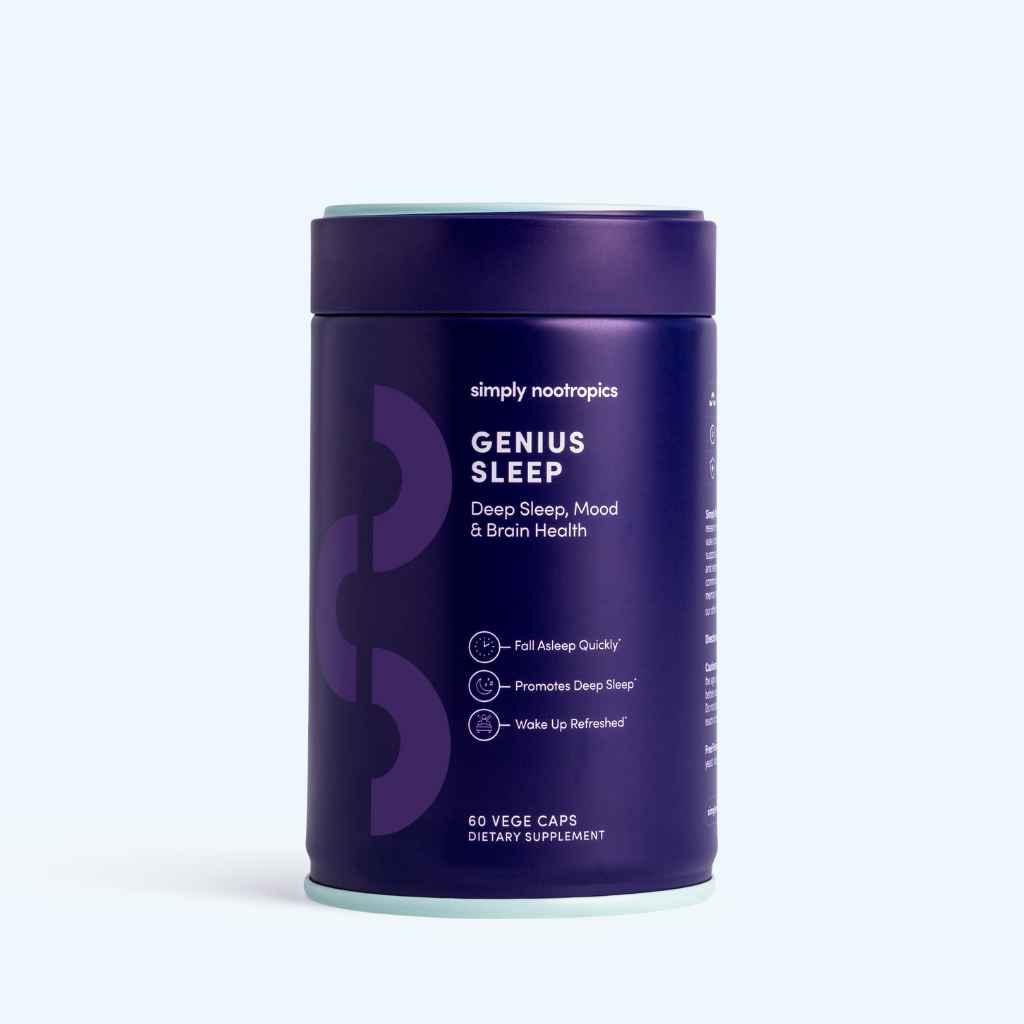When we think about nutrition and longevity, the focus tends to land on what we eat, on how to eat the healthy stuff like fruits, veggies, whole grains, and the occasional nootropic supplement. But what if when we eat matters just as much?
That’s what circadian nutrition is about: it turns out that aligning your meals with your body’s natural rhythms, those internal biological clocks, can not only boost your energy but also help you live longer, healthier, and maybe even sharper. Sound interesting? Let’s break down how it works and how you can use it to your advantage.
What is Circadian Nutrition?
Circadian nutrition takes its name from the circadian rhythm, the 24-hour internal clock that regulates a range of processes, from sleep to hormone release to digestion. You've probably felt the power of this rhythm when you experience jet lag or hit that mid-afternoon slump. That’s your body trying to adjust to its own time schedule.
But it’s not just sleep and mood that your body's natural clock controls, it also affects your metabolism. Studies suggest that when you eat can impact how efficiently your body burns fuel, regulates blood sugar, and stores fat. This is the essence of circadian nutrition: syncing your meals with your body’s internal clock for maximum health benefits.
The Science Behind It
Your body’s biological clock is primarily controlled by light exposure, telling you when to be alert or sleepy. But there's also a peripheral clock in your organs, which responds to signals like food intake. Your body's natural clock helps determine when your body is primed for digestion and metabolism.
Eating late at night, for example, can confuse this clock. Your digestive system expects rest, but you’re tossing in a cheeseburger, expect sluggish digestion, impaired glucose tolerance, and increased fat storage. Not exactly the recipe for longevity.
How Does Timing Impact Longevity?
It turns out that eating at times that align with your body's natural clock can support processes that protect cells, improve metabolism, and even help with DNA repair, which are all important for long-term health and longevity. Eating at the wrong times, on the other hand, can contribute to inflammation, higher blood pressure, and an increased risk of chronic diseases.
Timing your meals right might:
- Boost digestion: Your digestive system works more efficiently during the day, which can prevent issues like acid reflux or poor nutrient absorption.
- Enhance fat metabolism: Your body is better at burning fat earlier in the day and stores more fat when you eat late at night.
- Improve sleep: Eating too close to bedtime can disrupt sleep quality, which plays a huge role in cell repair and brain health.
And there’s a bonus, because fewer midnight snacks mean fewer chances for unhealthy eating patterns!
How to Align Your Meals with Your Circadian Rhythm
Now that we know the science, how can you apply circadian nutrition to your daily life? Here’s how to create an eating schedule that works in harmony with your body’s natural rhythms for good health and well being.
-
Start your day with a big breakfast
Mornings are when your metabolism is at its peak, so fuel up with a nutrient-rich breakfast. Think protein, healthy fats, and some whole grains. You'll feel more energised and less likely to snack impulsively later. -
Eat your largest meal in the middle of the day
According to circadian principles, lunch should be your biggest meal. This is when your body is most primed to process food efficiently. Go for a balanced meal with a variety of nutrients, like lean proteins, whole grains, and plenty of veggies. -
Have a light dinner
By the time evening comes, your body is gearing up for rest, not digesting a heavy meal. Stick to something light and easy on the stomach, like a salad with some lean protein or a small portion of soup. -
Avoid late-night snacking
Tempting as it is, those midnight snacks are a no-go. Eating late at night can disrupt your sleep, throw off your metabolism, and lead to weight gain over time. Try to finish your last meal or snack a few hours before bed.
The Nootropic Edge
Your circadian rhythm doesn’t just affect your metabolism, it’s also important for your cognitive function, good health and well being. Nootropics can help optimise brain performance, improve focus, and even support neuroplasticity, which is vital as we age.
But just like with food, the timing of nootropics matters. Here's how you can work them into your circadian nutrition plan:
- Morning: Start your day with a nootropic that promotes focus and clarity, like L-Theanine. These can help you feel sharp and alert during those prime metabolic hours.
- Midday: Consider a cognitive booster like Rhodiola Rosea or Ashwagandha around lunchtime. These adaptogens help balance stress levels and keep you energised through the afternoon.
- Evening: As the day comes to an end, opt for a nootropic that supports relaxation and sleep, such as Magnesium. A good night’s sleep is critical for cell repair and overall brain health, and it will make your morning meal routine all the more effective.
By tuning into your circadian rhythm and timing your meals accordingly, you can support everything from metabolism to brain function. To give your body an even better shot at healthy ageing, try adding nootropics, like Simply Nootropics Essentials, a blend that contains many of the aforementioned ingredients, or Simply Nootropics Genius Sleep, with Magnesium and L-theanine, which, together with aligning with your body’s natural rhythm, can support both your body and brain.














